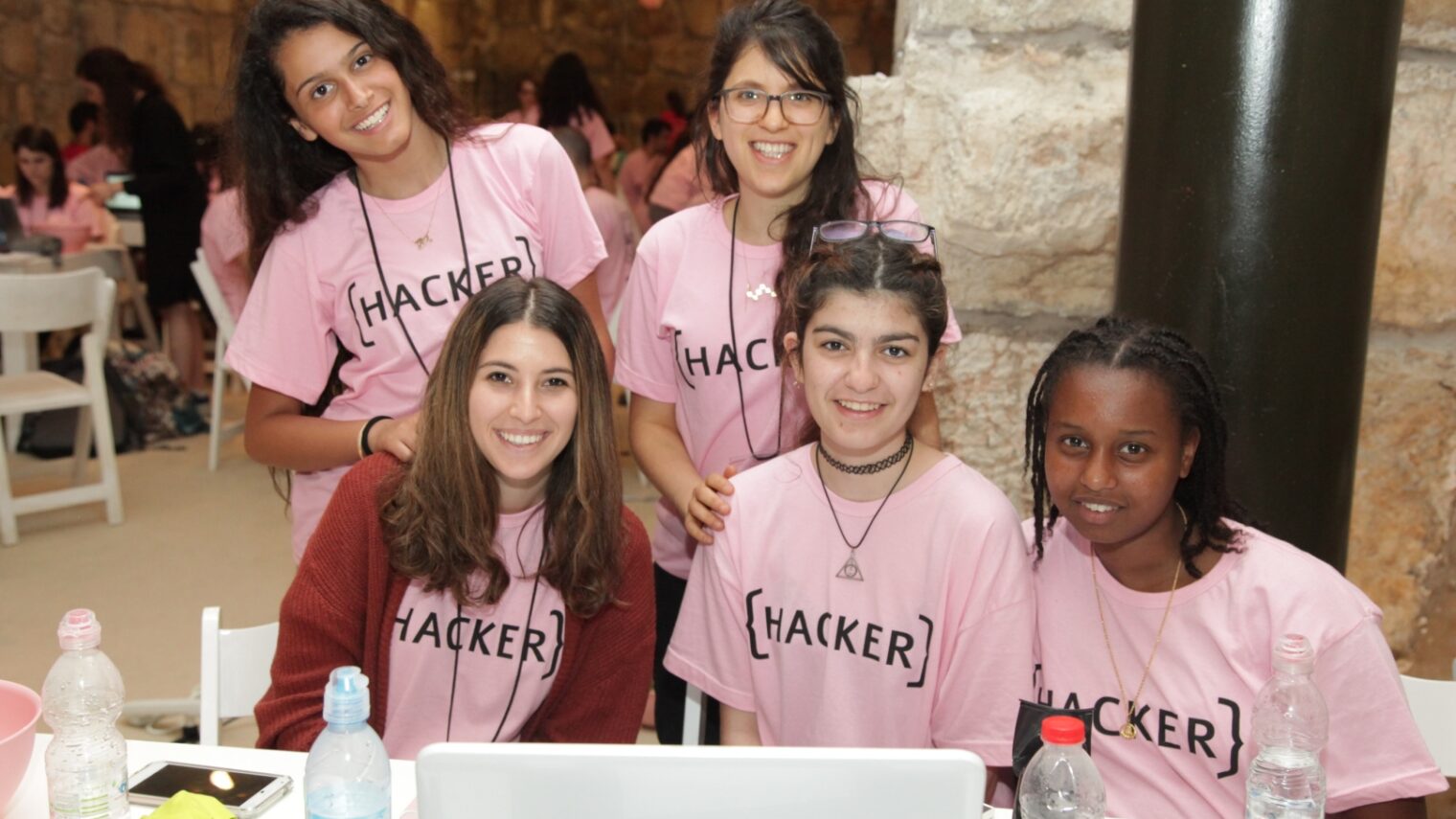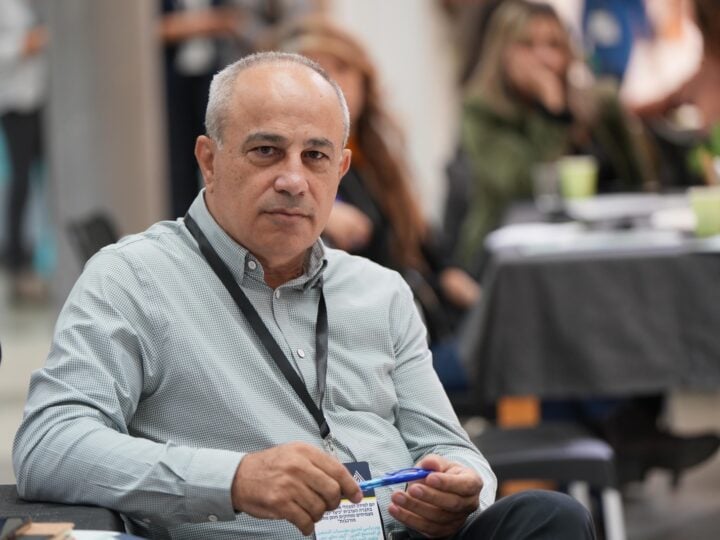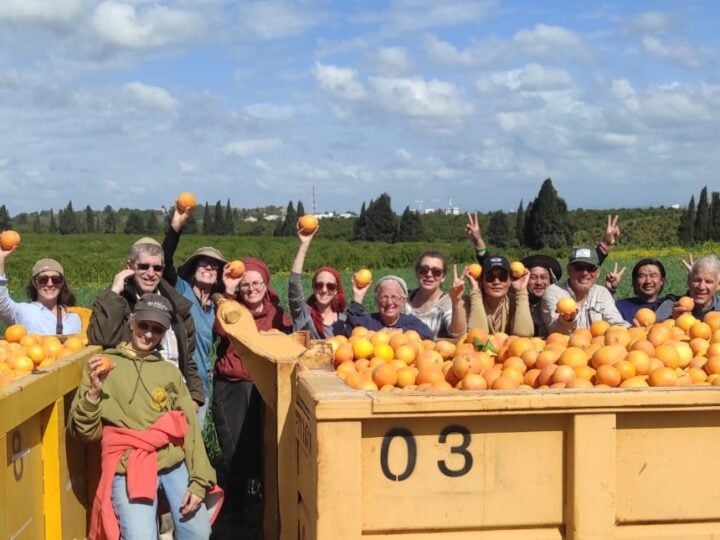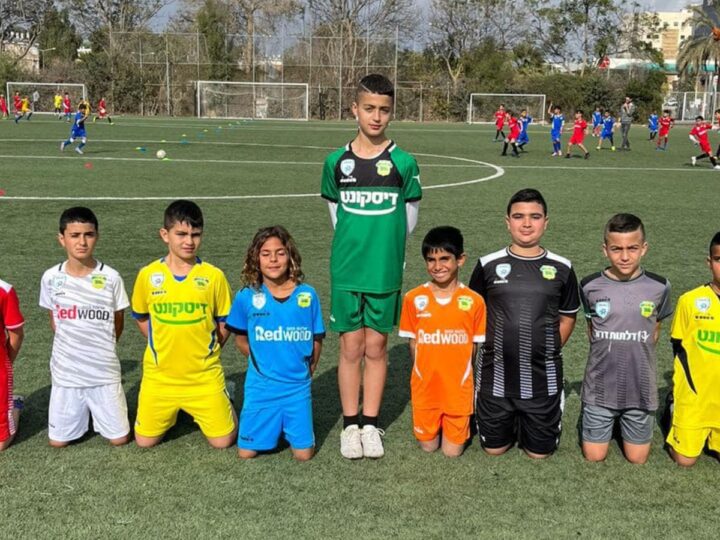It’s no secret that men hold most of the senior positions in government, academia and industry. Girls are a minority in STEM (science, technology, engineering and math) classes and women are a minority in the high-tech workforce.
While online communities help women and teenage girls gather information and compete for jobs in high-tech, real communities are the latest trend in the two biggest high-tech hotspots: the United States (Silicon Valley) and Israel (Silicon Wadi).
“When I was starting out in tech, it felt natural to me that this area was dominated by men, and I learned to live with it. Today, I understand that not only do things need to change, but I can personally be a part of the solution,” says Microsoft senior program manager Shira Weinberg, cofounder of LeadWith, a nonprofit organization empowering the female tech community in Israel.
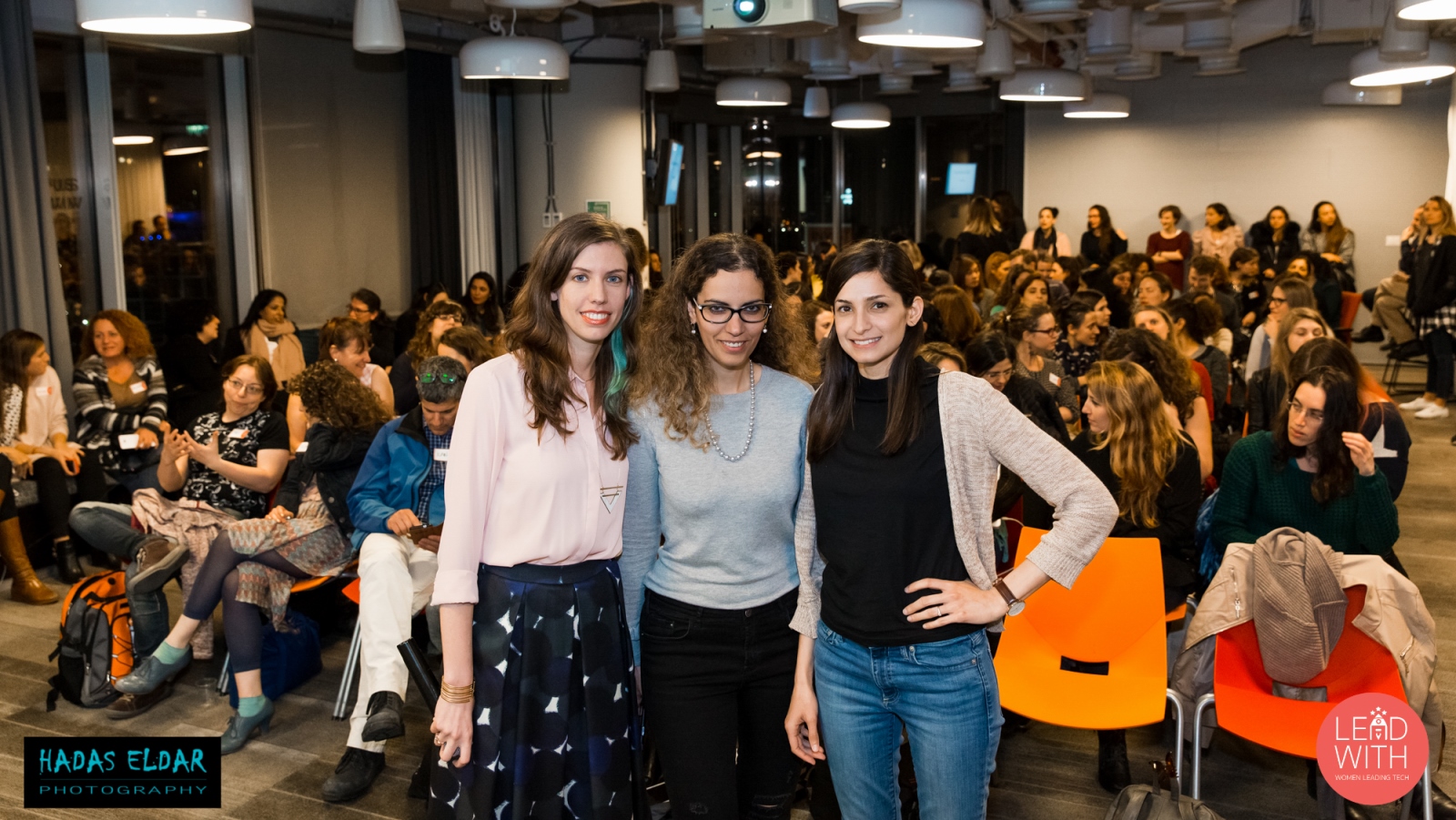
“By encouraging women, providing them with the right tools and knowhow, we can reduce the gender gap in the industry and shape the way it will be in 20 years’ time,” says Weinberg.
She founded the group in 2016 with Dalit Heldenberg, head of product at Workey. Companies such as Microsoft, Google and Wix provide space and refreshments.
With more than 15 years in high-tech, Heldenberg strongly believes that a big network of women can leverage their career. “When I searched for my first position as a product manager with no experience, I felt I needed to consult with women who did the same transition. In today’s connected world, there is room for women to consult each other, meet, and learn various related topics on a regular basis, and help each other to succeed in the industry with more options, tools, mentoring and connections. At the end of the day our goal is to empower women in tech and provide them with tools for their career.”
“Our first meetup we had no idea what we were getting into,” says Weinberg. “We thought we’d get 50 women and actually 200 registered.”
The community now includes 1,600 women in high-tech, from entrepreneurs to developers to product managers, in their mid-20s to mid-40s. Most meetups take place in Tel Aviv and Herzliya.
“We have events every month or two that usually include a main session on providing concrete soft skills that people can use the next day at the office. Every two months, volunteer mentors give 30-minute one-on-one sessions with mentees we’ve matched them with in advance. And we have a nine-week accelerator program for entrepreneurs in very early stages, in cooperation with the Wix Hub,” says Weinberg.
On June 7, LeadWith held a hackathon at the Google Tel Aviv Campus to help the Rashi Foundation launch its CyberGirlz real-time social network for tech-oriented female high school students.
“We brought the women and they brought the girls,” says Weinberg.
About 40 of each teamed up to find high-tech solutions for a simulated attack on a nuclear reactor’s computer system.
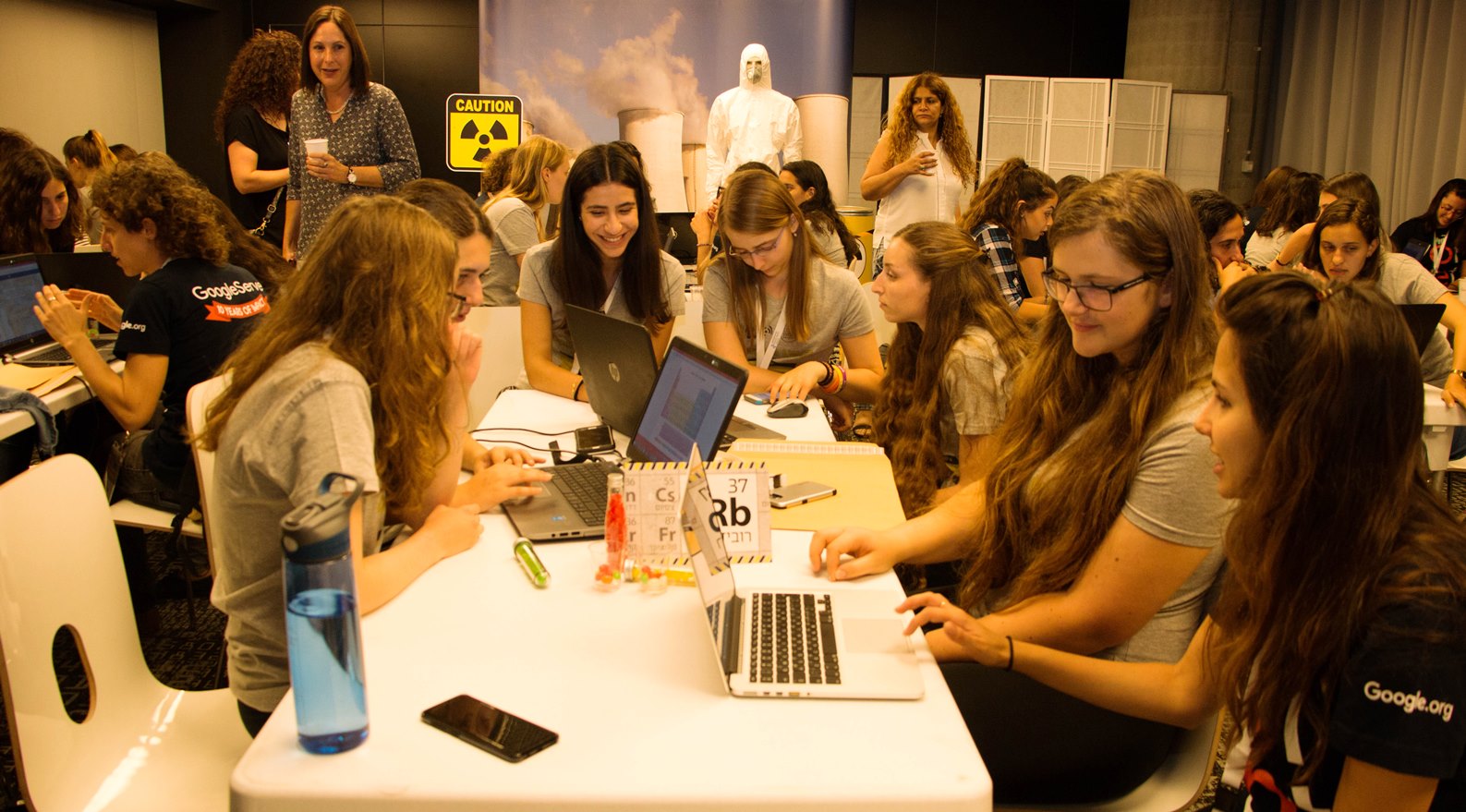
CyberGirlz manager Tali Ben Aroya, 32, was the only woman product manager in a company in the United States five years ago. Back in Israel, she entered a startup hub to launch a business and again was the only woman.
“It really bothered me and I realized it shouldn’t be like that,” Ben Aroya tells ISRAEL21c.
While working at the Rashi Foundation part time to fund her startup, she saw that girls comprised less than 20 percent of the high school students in Rashi’s Magshimim cyber-education program in periphery towns.
“I realized that making cyber exciting for girls is a marketing issue,” says Ben Aroya. “I talked to teachers and mentors in Magshimim and decided to establish a separate program. Last summer we unofficially launched with a camp for 150 girls.”
CyberGirlz has an online component where girls can dialogue with women in military tech units and in high-tech companies. It has in-school lectures for teachers about overcoming gender bias in the classroom.
The main focus, however, are CyberGirlz’ skill-building activities, which have attracted 500 girls from Beersheva in the south to Yokneam in the north.
“My goal is to reach every girl who is interested in the subject,” Ben Aroya says. “We branded CyberGirlz as girls who are self-confident, social, fun and cool, and maybe will serve in a cyber unit in the army.”
Hardcore coding
A similar nonprofit initiative, QueenB, reaches eighth-grade girls from four Jerusalem schools under the umbrella of the PICO Kids philanthropy engaging Jerusalem schoolchildren in STEM and entrepreneurship.
Hebrew University computer science and math student Yasmin Dunsky, 25, started QueenB out of her concern that not enough women are coders and software developers. Volunteers from the Hebrew University Student Union teach 40 girls Java after school, forming personal connections.
“It’s a real hardcore coding class,” Dunsky tells ISRAEL21c. “At the end they learn app development and create their own app. That is a big motivator. We have two ninth-graders who told us they chose computer science as their major in high school because of QueenB.”
With their mentors, the girls also tour workplaces such as Google and MassChallenge, and hear guest speakers such as a female programmer from Mobileye. Mobileye and JNext are cosponsors of QueenB.
In addition, QueenB holds classroom sessions for seventh-graders about gender stereotypes and opportunities for women to influence the Israeli high-tech sector.
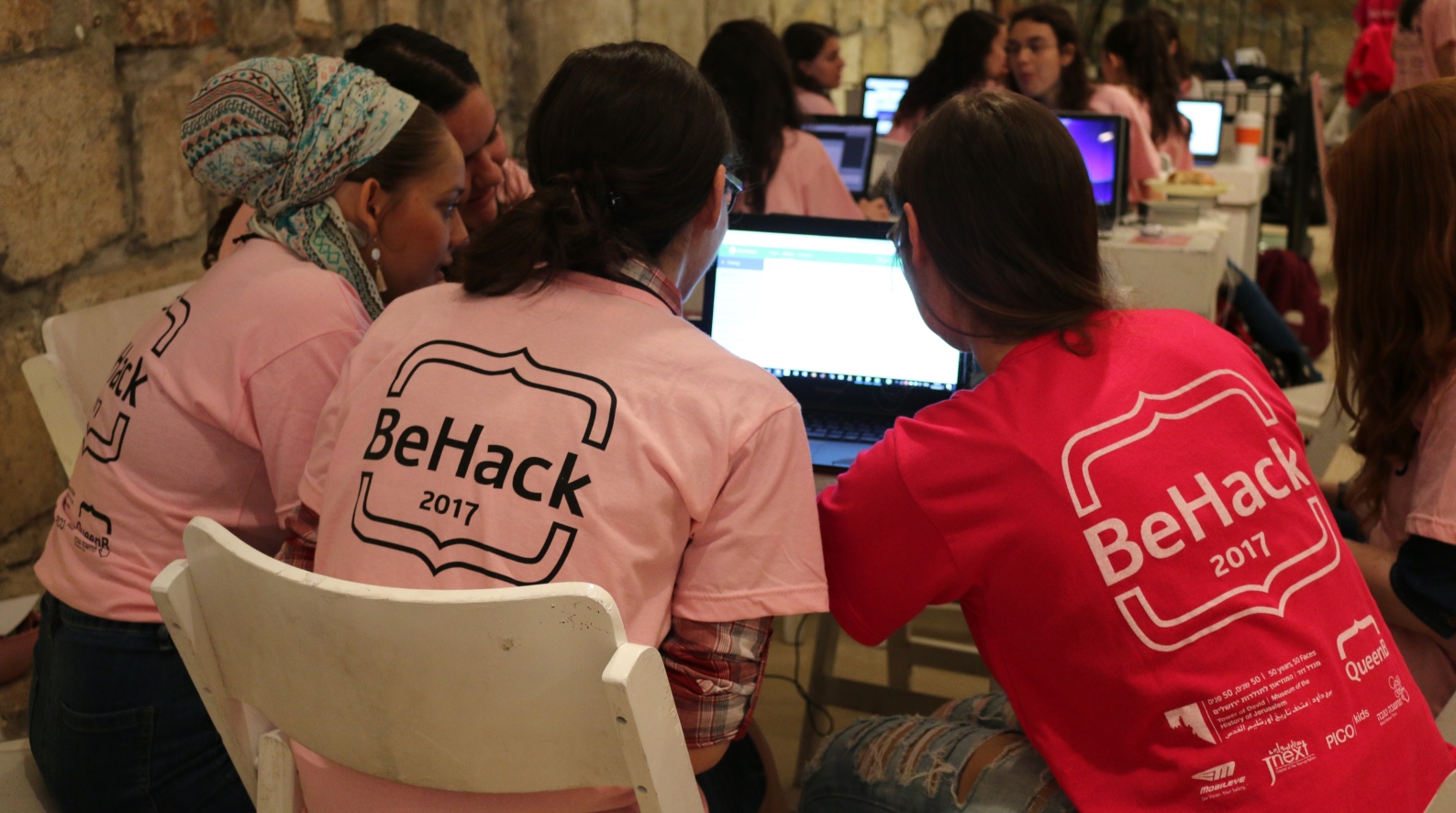
QueenB recently decorated a room at the Tower of David Museum in pink for an all-day hackathon where 100 students and teachers built apps with names like Be Strong, a self-defense app, and Be Happy, a joke app.
“A lot of young women don’t see the importance of hackathons and are afraid to take part in events that are competitive and will take away from school time,” says Dunsky.
“One of the problems keeping women from high-tech is that a lot of average-and-up boys will push themselves to get into the field, yet girls who don’t feel exceptional are afraid to push themselves. We want to show them that you don’t have to be an honor student.”
She says the community aspect of QueenB is critical in a country where the typical startup is founded by veterans of male-dominated military intelligence units.
“If you serve as a programmer in the army and build a startup, you’ll pick your friends and you’ll know more men than women,” says Dunsky.
“I think QueenB will gather a lot of strong women who want to do big things in their lives and will be able to work with each other when they get into the job market.”




